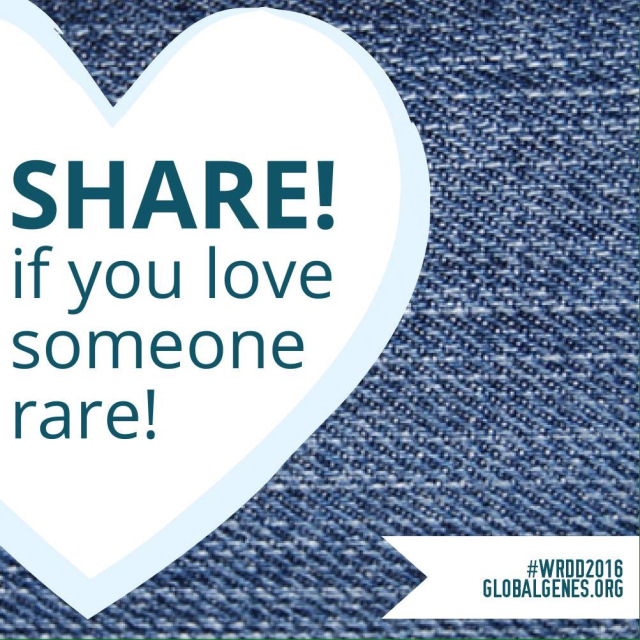I love someone rare. Anyone who’s ever followed my personal blog knows that. And there’s a good chance if you’re reading this, you, too, love someone rare. And that’s the ironic thing about rare diseases — they’re actually more common than you may think.
In Canada, a disease is considered rare when it affects fewer than 1 in 2,000 people. About one in 12 Canadians are affected by a rare disease, roughly 67 percent of those are children. Currently there are over 7,000 known rare diseases and that number is climbing every year. With so many different diseases and each one affecting only a small and fragmented part of the population, expertise, treatment and research for each disease is extremely limited.
At the moment only about 60 percent of treatments for these rare diseases are available in Canada. And most of those were approved up to six years later than the United States and Europe. My family is currently experiencing this as the drug Procysbi has been approved in the U.S. since 2013, yet it is still not available in Canada.
The Canadian Organization for Rare Disorders is a wonderful organization advocating on behalf of all those affected by rare diseases by trying to implement an orphan drug policy (hello Canadian government, it’s 2016, the U.S. has had one in place since 1983 and Europe since 1999!), implementing advanced newborn screening in all provinces and territories, increasing accessibility for genetic counseling, promoting innovative research and much more. In May 2015 they released a rare disease strategy which, if implemented, would help Canada catch up to the countries that have already developed a national plan for rare diseases. Help them kick the Canadian government in the butt by signing this petition.
Out of those 7,000 and counting rare diseases, about 80 percent are caused by genetics, like cystinosis. And around 50 percent of those with a rare genetic disease are children, which is most likely due to the fact that the mortality rate for genetic disease is not great. About 30 percent of children with rare diseases will not live past 5 years old. Sadly it is estimated that 95 percent of rare diseases do not have one single FDA-approved medication and with only 50 percent of rare diseases being represented by their own foundation to support research, that figure will likely not change.
Global Genes is a worldwide advocacy group who’s mission is to eliminate the challenges of rare genetic diseases. Their website has some great resources including documentaries, patient stories, webinars and more. Their shop Rarehouse has some great toolkits like “Advocating for your child with a rare disease at their school” and also some cute clothing and household items to help raise awareness. I like the “My Love is Rare” T-shirt.
It’s estimated that 350 million people worldwide are living with a rare disease. This is why initiatives like Rare Disease Day are so important. Separately, each rare disease and its supporters are small in number, but together we are a large group of strong and mighty advocates. When combined, rare diseases are in fact not all that rare, and those of us who are either living with or dealing with a rare disease could use everyone’s compassion and support. There are tons of events and social media campaigns happening on and around February 29 (Rare Disease Day) so check out what’s happening in your country and please support us.
You may not know anyone else with cystinosis, but with 1 in 12 Canadians having a rare disease, I’m sure you know someone else with something else, and supporting this cause supports us all.

The Mighty is asking the following: What’s one thing people might not know about your experience with disability, disease or mental illness, and what would you say to teach them? If you’d like to participate, please send a blog post to community@themighty.com. Please include a photo for the piece, a photo of yourself and 1-2 sentence bio. Check out our Submit a Story page for more about our submission guidelines.
